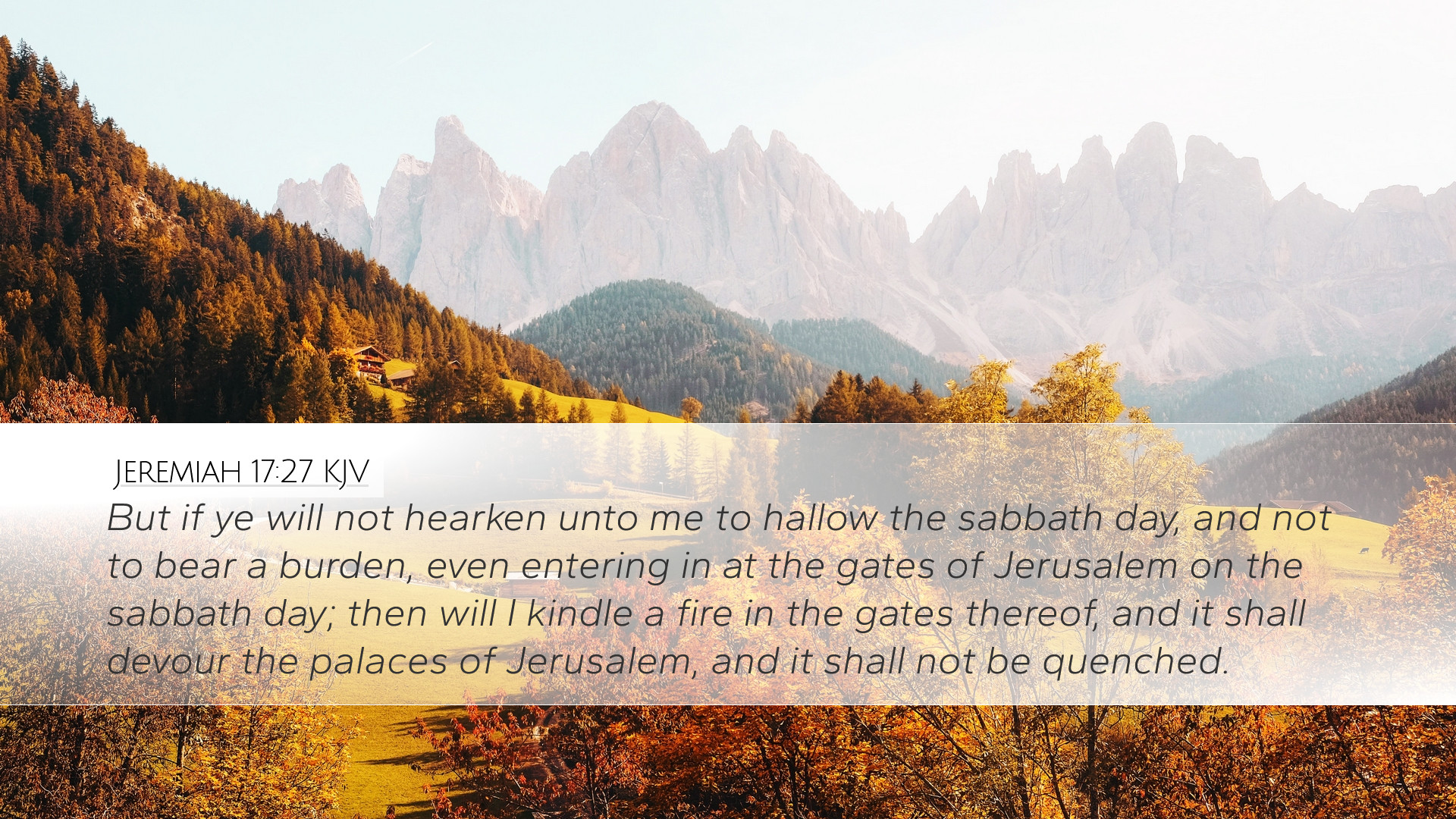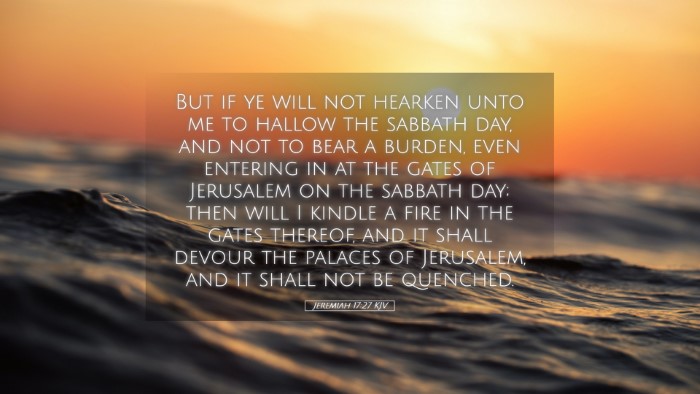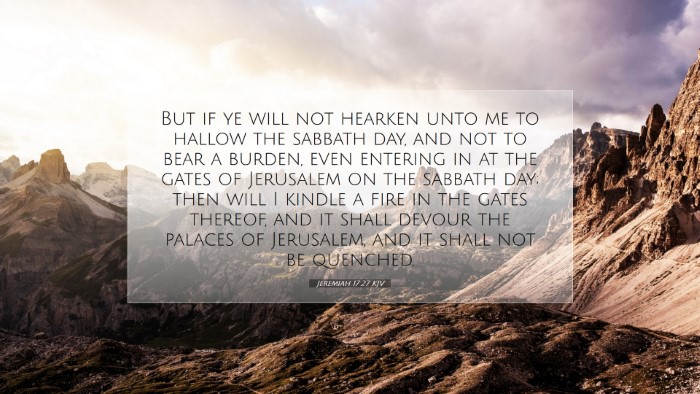Commentary on Jeremiah 17:27
“But if you do not listen to Me to keep the Sabbath day holy, and not to carry a burden, and to enter through the gates of Jerusalem on the Sabbath day, then I will light a fire in its gates, and it will consume the palaces of Jerusalem and not be quenched.”
Introduction
This verse from the book of Jeremiah serves as a potent reminder of the covenantal obligations set forth by God, particularly concerning the observance of the Sabbath. Here, we find a divine warning concerning the consequences of neglecting this commandment. Within this commentary, we will explore insights from various public domain commentaries including those of Matthew Henry, Albert Barnes, and Adam Clarke to unpack the rich theological significance and implications of this passage.
Contextual Background
The prophet Jeremiah spoke during a tumultuous period in Israel's history, characterized by idolatry, social injustice, and impending judgment from foreign powers. The pivotal call to covenant faithfulness includes the observance of the Sabbath, integral to the identity of the Israelite nation. This call emphasizes both physical rest and spiritual rejuvenation that the Sabbath represents.
Jeremiah's Prophetic Role
Jeremiah functions as both a prophet and a watchman, warning the people of Judah about the severe consequences of their actions. As highlighted by Matthew Henry, Jeremiah's messages were often dire but offered a pathway of hope through repentance. His admonition concerning the Sabbath encapsulates the serious nature of prophetic warnings and God's unwavering standards.
Theological Insights
The Importance of the Sabbath
The Sabbath is not merely a day of physical rest; it symbolizes a deeper spiritual truth. According to Adam Clarke, the command to keep the Sabbath holy also functions as a sign of the covenant between God and Israel. Clarke notes, "The observance of the Sabbath was designed to keep alive the memory of God as the Creator." This serves as a reminder for believers today to honor their relationship with God through rest and worship.
Consequences of Disobedience
Jeremiah 17:27 brings forth a stark warning: disobedience to God's command leads to dire outcomes. As discussed by Albert Barnes, the mention of fires consuming the gates and palaces serves as a metaphor for divine judgment against disobedience. Barnes states, "Neglect of the Sabbath implies a rejection of God's authority and a downward spiral into chaos." This emphasizes the gravity with which God regards His commands.
Spiritual Ramifications for Today
While the immediate context of Jeremiah's prophecy concerned Judah, the spiritual principles remain relevant for contemporary believers. The neglect of spiritual observances, such as the Sabbath, may lead to broader ramifications in one's spiritual life. As noted by Matthew Henry, failing to prioritize holy observance can result in a weakening of one's spiritual vitality.
Practical Application
For pastors, theologians, and students of the Bible, this verse serves as a call to both personal and communal reflection. The importance of rest and the observance of holy days fosters a culture of remembrance and gratitude towards God. In practical terms, believers are encouraged to consider how modern-day practices align with the scriptural mandate of Sabbath observance.
Encouragement towards Faithfulness
God’s call through Jeremiah to keep the Sabbath is an everlasting injunction for God's people. It urges believers to consciously dedicate time to worship, reflection, and rest in the presence of God. In navigating busy lives, one must intentionally embrace moments of stillness, as pointed out by Clarke, “Sabbath observance is not merely a task but a divine gift.”
Pastoral Reflections
Pastors are tasked with guiding their congregations into deeper understanding and appreciation of the Sabbath. This verse, along with its commentary, should inform sermons that address not only the act of keeping the Sabbath but also its transformational potential in leading believers to a deeper relationship with God.
Conclusion
Jeremiah 17:27 serves as both a warning and a summons to a life of holiness and covenant faithfulness to God. The insights of Matthew Henry, Albert Barnes, and Adam Clarke illuminate the multifaceted nature of this command. In studying this verse, we are reminded of the importance of rest, the consequences of neglect, and the joy that comes from honoring God in deliberate observance. This sacred rhythm of renewal is crucial for both individual faith and the spiritual health of the community.


